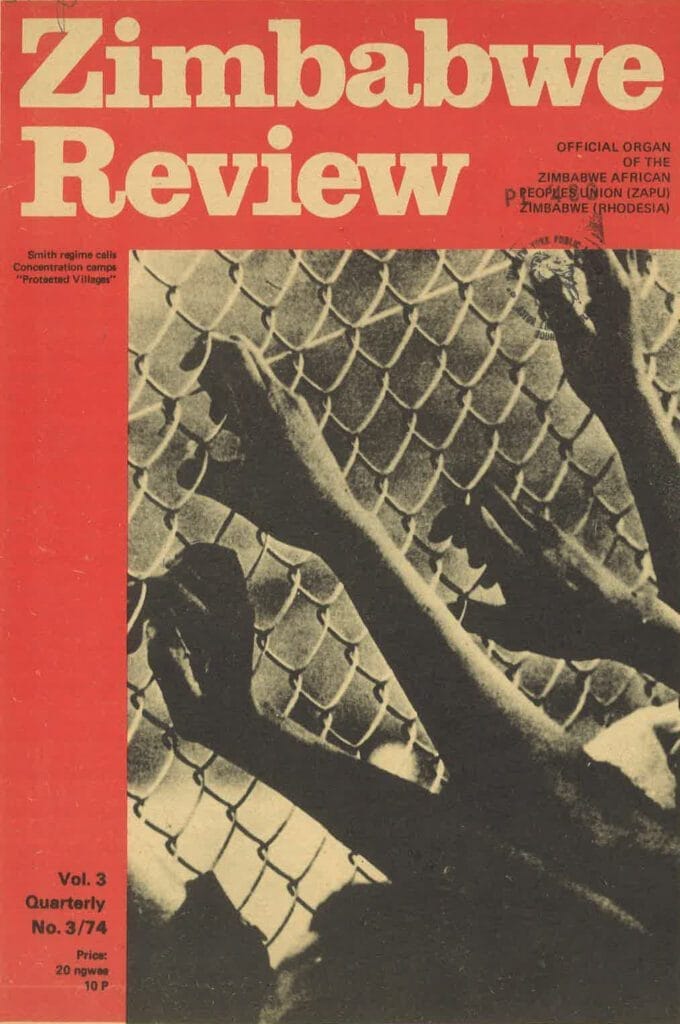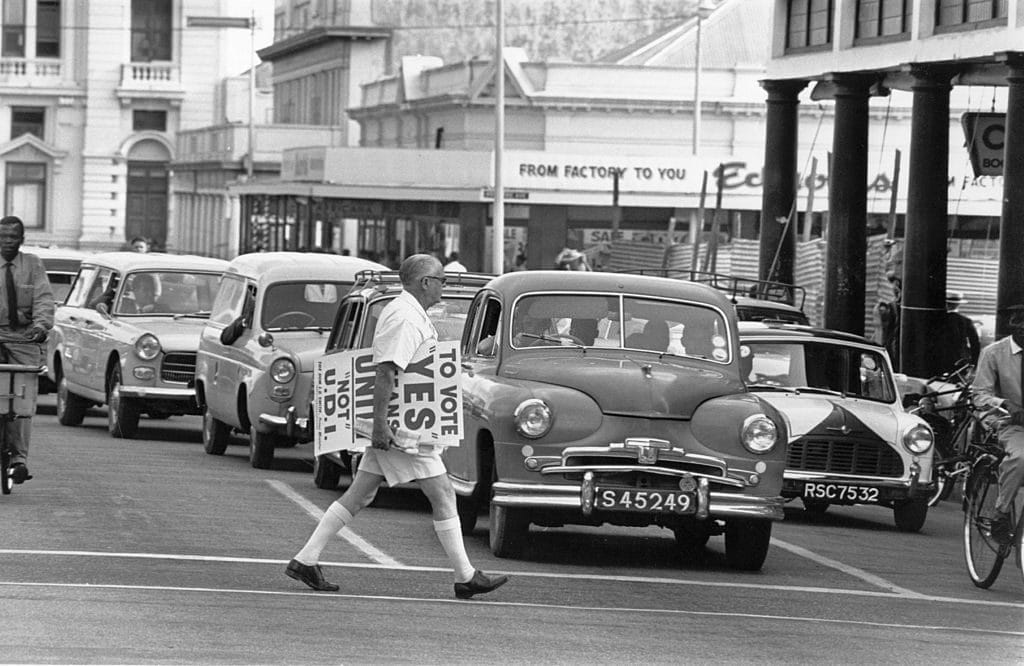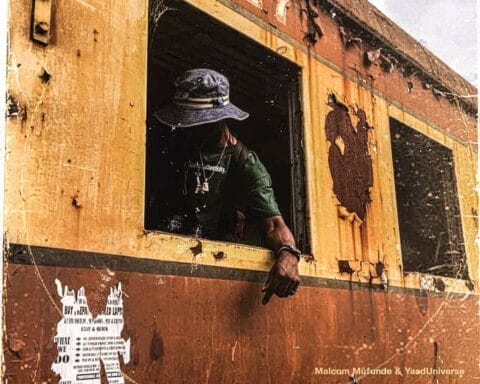This is a digitised version of the Editorial from Zimbabwe Review Vol. 3 Quarterly No. 4/74.


1974 is coming to an end, Soon we shall be entering the new year. A brief glance over the past twelve months will help us to draw up a balance of our set backs and achievements. In a situation such as ours where we are laying down a foundation and, at the same time, seeking to cover new ground and defend our gains against such a rapacious enemy as the Rhodesian and South African facists set backs are to be expected. In our situation it must be born in mind that we are not always in possession of the necessary means to meet the immediate demand.
We began 1974 with the spirit to forge ahead. We vowed that we would never give ground to our enemy. We inflicted several losses on the enemy. Never will the racists forget the ZAPU attack on the fishing camp at Kandahar in which a whole unit of South African forces was wiped out without as much as a single drop of blood being shed by the gallant Zimbabweans, That was a blow that both Smith and Vorster will live to remember. For as long as we are denied freedom in our own land, more Kandahar incidents should be expected. Both Smith and Vorster will have yet more incidents to remember in their sad lifetime.
We are not unaware of certain very desperate acts mounted by forces of oppression in certain areas against absolutely innocent souls as reprisals against our many successful onslaughts to free Zimbabwe. We regard reprisals against harmless civilians as expressions of craven cowardice. We do not only criticise such measures, but condemn them with all the violance at our disposal.
While our national task is long and arduous, we do not lose sight of its urgency. We are acutely aware that the enemy is not standing idly by but is trying to consolidating his position daily.
We feel a sense of sharp exasperation at repeated reports at some arms deals between nations (whose bitter experiences and losses are not unlike ours) and the Rhodesian regime or the South African facists. We are not aware that those nations who have consistently claimed to be with us, but make occasional arms purchases from South Africa, can be serving their interests, long-term or short-term, in view of the changing political panorama in Southern Africa. We appeal to them to reassess their priorities correctly.
The world is divided between anti-imperialist freedom forces and those of anti-freedom Reacetionaries forces. It is not realistic to claim to stand between the two without a national stand point for one or the other. With the passing of 1974, we appeal to all those who claim to support freedom to show it by their actions which must always constitute a blow against the oppressive dictatorships of Southern Africa.
We cannot take statements at the United Nations or the Organisation of African Unity or by certain members of the nonalligned grouping seriously if the actions of the speakers both before and after the statements show a clear partiality for South African or Rhodesian trade, finance or products. We hope that 1975 will bring about a change in this regard.
The change in Mozambique is a lesson to those who based their external policies on expediency rather than on principle. Without excluding any friend or supporter, we would be failing in our international obligations if we did not mention the great role played in our struggle by countries like Zambia, Tanzania, the USSR, the German Democratic Republic, Somalia, Botswana and others.
At this crucial stage we need international material support and facilities. We cannot but feel greatly encouraged by the tangible and visible help from those of our brothers and sisters whose geographical situation and ideological obligations place them in the same camp with us vis-a-vis oppression and exploitation, We kindly request those whose sympathy is neither visible nor tangible but only audible to acknowledge that sooner than later they will have to deal with us from effective positions of power than with the present South African or Rhodesian racists. We are the forces of the future. The oppressive regimes are only but a passing phenomenon, whose connection with history is as short lived as it is maintained by armed violence.
1974 will soon be passed. We salute it as a particularly successful one for the revolution in southern Africa. We applaude the break-up of the unholy Pretoria-Salisbury¬Lisbon alliance due to the consistent struggle of the progressive forces in Portugal and the telling blows struck by the liberation movements in Guinea7Bisseau, Mozambique and Angola. We salute the Republic of Guinea-Bissau which has just marked its first anniver¬sary. We rejoice in the achievements of the people of Egypt who in the face of the NATO, South African and Rhodesian backed imperialist forces of Israel will soon be opening the Suez Cannel once again. We are confident that this great national asset of the Egyptian people will also serve the cause of our own liberation struggle in Zimbabwe. All these factors are very dear and vital to us. We wonder whether the Rhodesian regime views them with the attention they deserve. If it does not we wonder whether Ian Smith and his regime realise that we are very much on top of the situation. That he and his South African allies are on the losing side. We wonder, too, whether or not Smith sees any sense in attempting to dig in even now when the odds are so overwhelmingly against his fascist regime. We vow to bury him if he digs in. Great Britian is still responsible for Rhodesia and we advise her from a purely humanitarian point of view to force Smith to abandon his reckless stand, to relent and retreat from his mad suicidal path. But be that as it may we are the ones who are determining and dictating the course of events. We Zimbabweans have room and respect for compassion and mannamity.
Zimbabwe Review Vol. 3 – Quarterly No. 4/1974
Zimbabwe Review Vol. 3 – Quarterly No.4 of 1974 is sure to offer a glimpse into the past for anyone interesting in knowing what life was like during that era. With its sharp eye for detail and trademark wit, this quarterly provides riveting insight into an undeniably pivotal period of history. From news and opinion pieces covering contemporary issues such as imperialism and racial injustice to poignant reflections from ZAPU’s leaders, this is truly the go-to source for understanding the political climate of that time. Each page contains captivating stories that can bring to life the struggles of Zimbabwe’s people seeking especially justice, freedom and human rights. Now’s your chance to take a trip down memory lane and discover all that this amazing publication has to offer!










